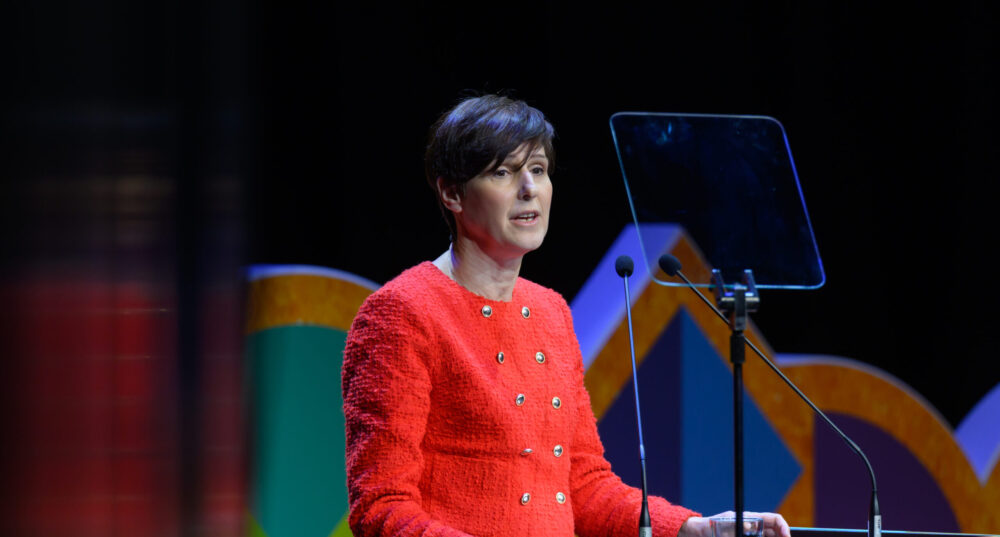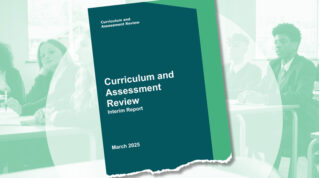The EBacc “may constrain” pupils’ choices and “limit access to” vocational and arts subjects, Professor Becky Francis has said as she outlined areas the curriculum and assessment review panel believe “need further attention”.
Francis, who is leading the government’s curriculum and assessment review, also stated that “the current construction and balance” of some subjects “appears to be “inhibiting mastery, hindering progress and undermining standards”.
Despite this, she told the Association of School and College Leaders annual conference this morning the evidence shows “many aspects of the current system are working well”.
“There are issues with the shape and content of the curriculum,” Francis said.
“While we have a broad offer, evidence suggests there are trade-offs between breadth and depth, which can make it harder for pupils to master a subject fully.”
Responses to the call for evidence, which ran from September to November, suggest “the EBacc may constrain choices, impacting students’ engagement and achievement, and limiting access to, and the time available for, vocational and arts subjects”.
Less time for arts and computing
At key stage 3, a “slight growth” in the teaching time for core subjects and humanities has led to “a slight squeeze for other subjects”.
This was “more notable at key stage 4”, with “more significant reductions for certain areas of arts, notably DT”, and in ICT and computing.
The review will assess “the place of performance measures within the wider accountability framework, looking at the impact on young people’s choices and outcomes”.
“We have also heard consistently that in some subjects the current construction and balance of content appears to be inhibiting mastery, hindering progress and undermining standards,” Francis added.
Questions have been raised “the volume of content, and over-prescription in some areas”. The review has also been “made aware of challenges with under-prescription in subjects, with some programmes of study lacking specificity”.
This can “lead to greater volume and repetition”.
Curriculum ‘fit for future’
Another area in need of “further attention” is the “notion of a curriculum fit for the future”. The rise of AI and “trends in digital information demand heightened media literacy and critical thinking, as well as digital skills”.
And rapid “social, environmental and technological change necessitates… a renewed focus on digital and media literacy, and on sustainability and climate science”.
Children and parents have also called for “more focus on the applied knowledge and skills that will equip them for later life and work”, like financial education, careers knowledge and politics and governance.
“So, an ongoing challenge for the review is to address these needs and concerns, while remaining mindful of the existing pressures on curriculum time,” Francis said. “Careful mapping of existing provision and identification of gaps will be crucial.”
However, Francis stressed that the English curriculum to age 16 is “reasonably broad and balanced” when compared to other parts of the world.
Evidence suggests the “knowledge-rich” system “has had a positive impact on attainment”.
Francis, also the CEO of the Education Endowment Foundation, noted that the review’s interim report will be available to read “exceedingly soon”.
It will contain analysis “of the different strengths and challenges of the present system”. The final report will be published this autumn.
















This review is welcomed and long over due. It is positive to see that there is a greater support for the Arts and DT including vocational courses. The creative industries are one of the highest contributers to our economy but are often the ones least understood by parents and many academics. The skills and knowledge developed are highly transferable and draw knowledge from a wide range of sources. Vocational courses are also important as there are about 30 percent plus who can not access our current curriculum who would benefit from vocational courses that develop life long skills wrapped with core knowledge from Maths and English that is accessible.
There is another area that needs to be reviewed- the need to cram literacy, numeracy, PSHE into 20 minutes of tutor time. There was a time when tutor was for register, notices and some social time for the students so they could chat with each other and catch up with the news they think is important. It was also a time when a tutor could get to know the students, especially important when writing reports.
I would like to see a review of how we access knowledge as waiting to assess formally at the end two years is for some students extremely difficult and doesn’t reflect the world of work. Much of my learning since leaving school has been unitised and achievable in small chunks yet we insist on assessing students at the end of the year. To add to this they are supposed to sit 5 or more subjects that test like this. To make it accessible to less academic students the exams could be unitised so students sit exams as they go a long, handling small chunks of information. This should actually improve depth of knowledge in these units. The results could be scores which add together to give a final qualification. This system could also be used to extend more able academic students who could add more complex units that adds variety or extends their knowledge at a higher level.